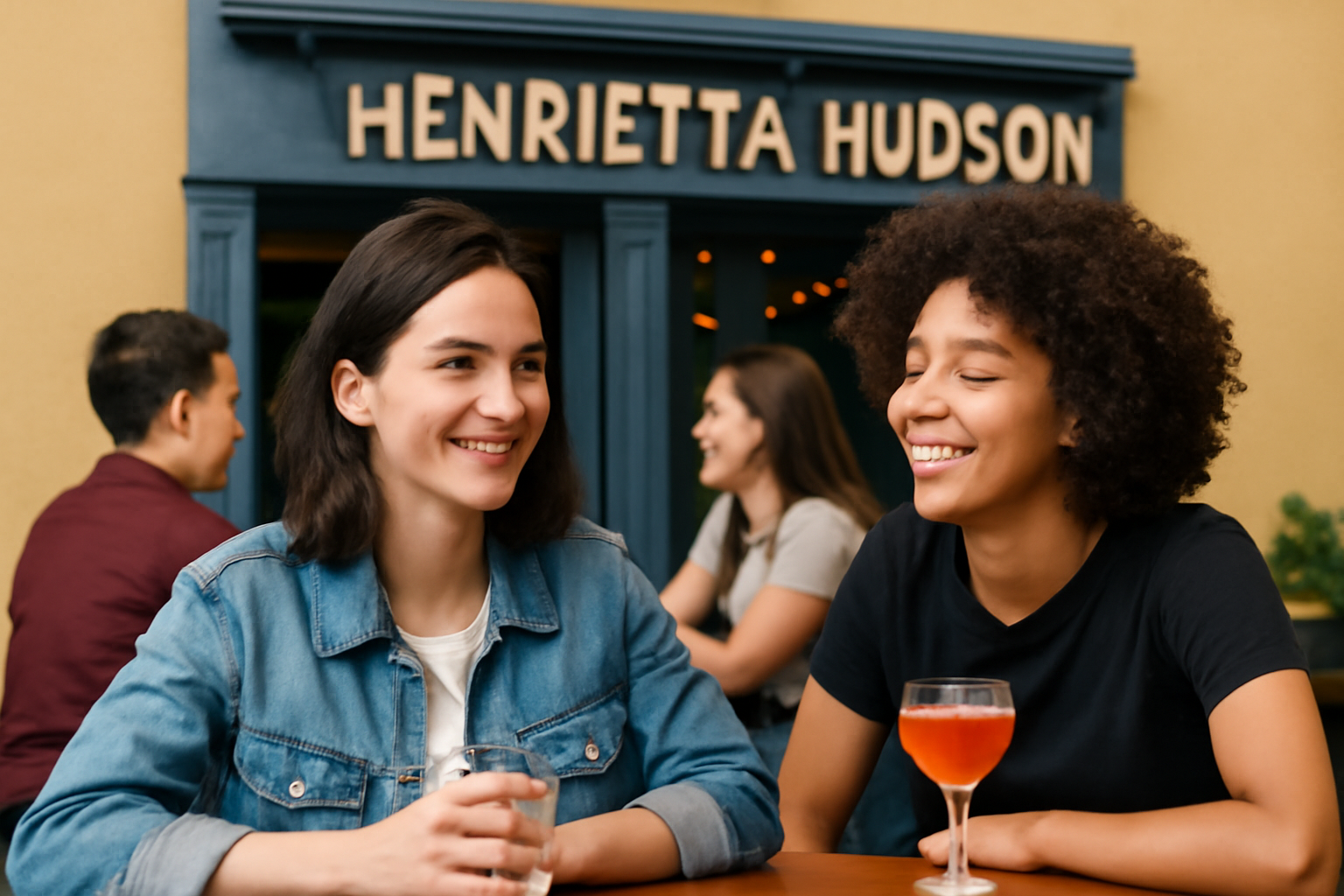
Henrietta Hudson holds the title of the longest-running lesbian bar in the United States. Located on a tranquil street in Greenwich Village, New York City, it has been a staple of the community since its inception in 1991.
Over the decades, Henrietta Hudson has witnessed significant societal changes, such as the acceptance of same-sex marriage and the broader inclusion of LGBTQ+ individuals in mainstream culture. Today, its patrons often include members of Generation Z, influenced in part by its proximity to New York University.
This younger generation came of age during a period when bars were less accessible, largely due to the COVID-19 pandemic. This has led to a noticeable shift in social habits; many Gen Z individuals are unfamiliar with the traditional bar experience.
Another transformation observed at Henrietta Hudson is the decrease in alcohol consumption among Gen Z. This trend is evident to Gaby, a manager who began working at the bar three years ago, initially in coat-check. Gaby (she/they) refers to the bar as "home" and has observed the evolution of its clientele firsthand.
The Rise of Sobriety Among Young Patrons
Gaby notes that a significant portion of the bar's orders, around 10-15%, are for non-alcoholic drinks. This pattern is consistent across different nights, whether it's a club night or a regular evening at the bar.
Across the country, similar observations are made by Olga, the owner of Doc Marie’s, another lesbian bar in Portland, Oregon. She also reports a decline in alcohol consumption among younger patrons.
Data from Gallup supports these observations, indicating that fewer than four in ten young adults report being regular drinkers. This is a stark contrast to two decades ago when young adults were more likely to consume alcohol regularly. Currently, 62% of U.S. adults report drinking alcohol, while 38% abstain entirely.
George F. Koob, Director of the National Institute on Alcohol Abuse and Alcoholism, stated to Time that younger generations view alcohol as a potential health risk, explaining part of the decrease in consumption.
Gaby suggests that the legalization of cannabis might also contribute to this trend, as some young people prefer it over alcohol or choose sobriety altogether.
Socialization in the Post-Pandemic World
A decline in social interactions might also influence drinking habits. A Time article reported a decrease in the average time people spend with friends, from 30 hours a month in 2003 to just 10 hours in 2020. This trend is particularly pronounced among those aged 15 to 24.
For a younger generation that is increasingly sober-curious and socially isolated, how do lesbian bars adapt? Olga emphasizes the importance of event programming as a strategy born from pandemic circumstances. Doc Marie’s hosts events nearly every day, including platonic friend mixers, cocktail classes, and tarot readings, alongside traditional activities like karaoke and trivia nights.
This approach helps attract patrons in a post-pandemic era where people are more intentional and selective about social outings.
Creating Inclusive Spaces
Gaby explains that Henrietta Hudson prioritizes community comfort over profits, offering a range of events that do not center around alcohol. "We have clubs coming in for events like dodgeball, where drinks are optional," Gaby says.
Both Henrietta Hudson and Doc Marie’s integrate non-alcoholic options within their regular menus. This strategy helps avoid alienation for those who prefer non-alcoholic beverages.
Henrietta Hudson offers creative mocktails like "phony negronis" and seasonal drinks, while Doc Marie’s features non-alcoholic cocktails made with high-quality ingredients, priced similarly to alcoholic drinks.
Olga notes that the decline in drinking doesn't deter business significantly, as alcohol sales remain robust. Both bars aim to offer equal value in their non-alcoholic offerings. "Gen Z's focus on health and moderation is something I fully support," she says.
Overall, the adaptation of lesbian bars to these social trends emphasizes a commitment to inclusivity and community well-being.
Related Posts
Triumphant Trans Woman Wins Legal Battle and Inspires Others to Stand Up for Their Rights
Breaking new ground: a landmark victory in transgender rights After battling in courtrooms and enduring endless challenges, Diana Portillo, a transgender woman, has secured a monumental victory in her decade-long fight against workplace discrimination. The result? Nearly $1 million awarded in a historic settlement. But this isn't just a win on paper—it represents a powerful precedent in combati [...]
Pride Month in Latin America: Protests and Demands for Equality
**Celebrating Pride and advocating LGBTQ+ rights in Latin America** Pride Month in Latin America was a lively mix where celebration met activism. Communities united, not just throwing a party but making a stand—demanding equality and pushing governments toward better protection and rights recognition. Throughout Latin America, pride events erupted in marches and cultural displays, each with a c [...]
Transgender Erasure Actions Implemented by National Park Service
```html Trump administration's impact on national park service and transgender recognition The Trump administration made notable moves in undermining transgender representation, which included directing agencies like National Park Service not include "T" and "Q" when they refered “LGBTQ” in any official communication. This move seems part a broader plan by this administration aimed at reducin [...]